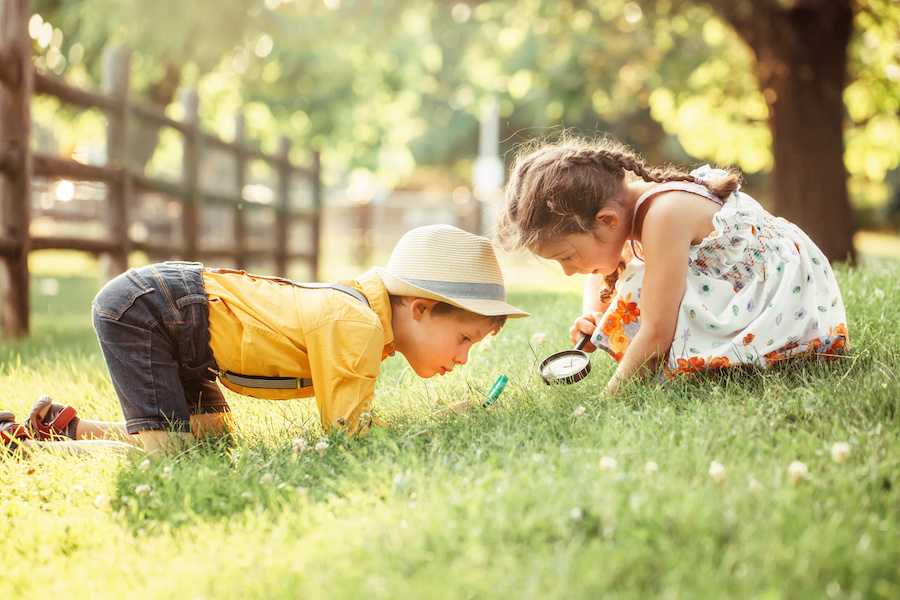
Bringing Curiosity Into Life
My larger than life father-in-law died unexpectedly last fall. Throughout the past year I’ve spent countless hours reading tributes and listening to stories – always thinking about what made him so beloved by his colleagues, friends and family.
Ironically, by chatting and journaling about what made my FIL special, I was channeling one of his greatest superpowers – curiosity. He seemed to be fueled by questions and was constantly asking humbly and honestly about people, places, things and ideas. His curiosity about others engaged them and put them at ease, and his comfort with not knowing made it easier for them to be vulnerable. Reflecting on his example, I became motivated to brush-up on research about what curiosity is, why it matters and how I could become more curious myself.
It turns out that my “curiosity about curiosity” was well-timed. Seeking understanding benefits us in ways that can help us rise to the challenges of COVID-19, societal stress and workplace transitions. Even better, as my FIL modeled daily, curiosity is a tool that helps us grow, succeed and build stronger relationships during the best of times, too.
Why be curious?
Being curious isn’t something we do, it is a mindset that shapes how we approach situations and engage with other people. At its core, curiosity is being open and motivated to learn – something we can practice in every situation. Being curious is associated with behaviors we all want to see more of, like listening with the goal of understanding rather than to debate, critique or judge. Having a strong tendency to seek out new information and experiences can change our perspective on people and events and it feeds our hobbies and interests, too.
It can be easy to focus on curiosity in formal learning settings and research shows that curiosity does pay off in stronger performance at school and work. However, being curious matters everywhere and in deeply human ways. People who are more curious experience healthier social relationships, less anxiety and greater life satisfaction than those who are less motivated to learn. They are also more empathetic.
How do we become more curious?
You may have noticed that some people have a naturally higher baseline of curiosity. The great news is that research shows we can all become more open and motivated to learn. In case you are curious, here are some ways to get started.
1. Ask purposeful questions.
To a certain extent, the questions we use to practice curiosity will depend on why we want to be more curious in the first place. For example, if you want curiosity to help you perform better at work or school, or because you are starting/deepen a hobby, start by asking yourself what you are interested in or what opportunities exist: we will always be more engaged and put in more effort for things that we care about. From there we can focus on getting better at learning itself (see below).
On the other hand, we experience the socio-emotional benefits of curiosity when we learn from other people. Asking “Why?” may be the stereotype for a curious person, but we all know why can come across as an accusation and make us feel defensive or like shutting down. Or, why can be an invitation to connect by sharing our ideas and feelings.
Emotionally intelligent questions do the latter consistently and they come more naturally with practice. If you would like to learn more, POD’s autumn catalog includes workshops on mindfulness, emotional intelligence and adopting a growth mindset at work.
2. Learn to notice when you are closed-off.
Questions aren’t everything – we can ask great questions when our minds or hearts aren’t open to learning. UW Work-Life and The Whole U encourage mindfulness practices as a way to support well-being. It turns out, clues from our bodies and minds can us become more curious, too.
For example, during the pandemic I noticed I was using a new phrase all the time, “I can’t believe…” – as in, I can’t believe they said that… Or, I can’t believe that is actually true. I realized that whenever I said or thought I can’t believe…, my body was tense, my breathing was short and I was ready to argue what had (or hadn’t) been said or done. I’m getting better at noticing I can’t believe… which allows me to get centered and better able to either learn from the person I’m talking with or to seek information about what has happened.
This 4-minute video about how our emotional reactions can close us to connection and learning can help you recognize your own cues (Access through UW LinkedIn Learning, NetID required).
3. Become a better learner.
We’ve been learning our whole lives so we are experts, right? Unfortunately, when we have a lot of experience doing something, we rely on patterns and habits and it gets harder to see ways we can improve. There are prompts that will help us try out different ways of thinking and make curiosity more natural. Being Huskies, we have access to resources that can help us do better research, avoid misinformation and encourage our children’s curiosity (NetID required).
What are you curious about?
I was curious about curiosity because I was honoring a loved one. What quality or skill do you want to learn more about, and why? How will you get started? I’d love to learn from you in the comments.